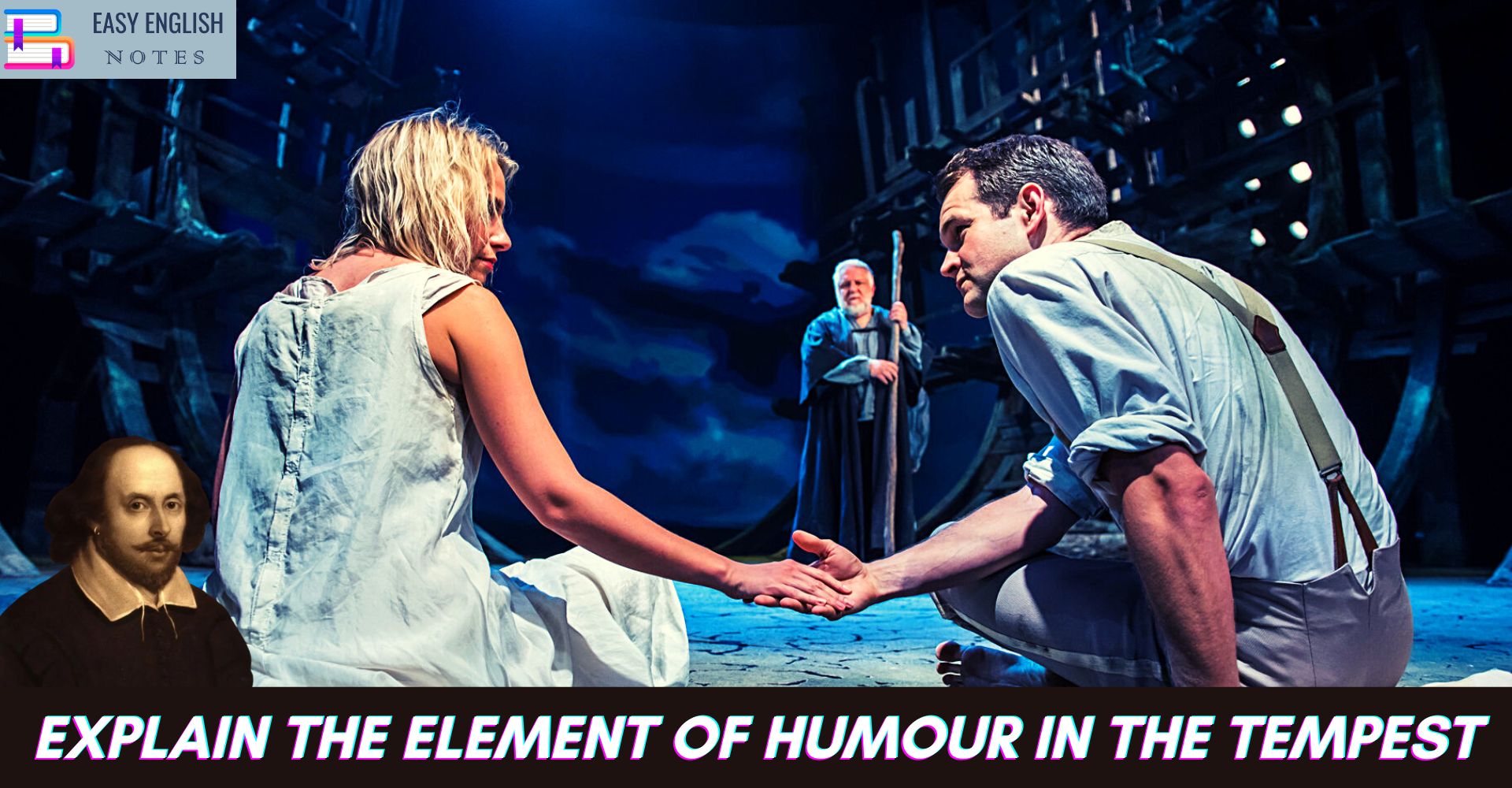The last plays of Shakespeare lack two things which we found in his earlier and romantic comedies-the vivacious witty heroines, ‘the savitars of comedy’, and the genunine fools. There was in the romantic comedies crackling of thorns under the pot. The atmosphere was sunny, bright and delightful. There was gaiety and mirth everywhere. The fools and the knaves jostled together. The fools and the heroines indulged in wit and sang sweet songs. A brilliant sunshine inundated and glorified those cheerful plays. The revelers, fools and drinkers raised the owl at midnight. Everything sparkled. The beaded bubbles winking at the brim irradiated the atmosphere in those plays. The bubbes were those of wit and mirth. We cannot expect such sunny humour in The Tempest. The Tempest is gloomy and gruesome. It is a tragi-comedy. Everything here is sober, serious and solemn, even dark. And whatever humour we have in this play is farce. The comic is knockabout type. The last play, however, are not without humour. Humour, though of low quality, is found in The Tempest.
Gonzalo, an honest old Councilor, is a great source of humour in the play. His foolish yet optimistic remarks amidst the confusion of the storm and bewilderment provoke ripples of laughter. Mark his words:
Also Read :
- Compare Hamlet with Macbeth, Othello and other Tragedies
- A Short Note On The Use Of Imagery In Shakespeare’s Sonnets
- Prologue to Canterbury Tales – (Short Ques & Ans)
“I have great comfort from this fellow methinks he hath no drowning mark upon him: his complexion is perfect gallows. Stand fast, good Fate, to his hanging; make the rope of his destiny our cable, for our own doth little advantage.” And when there is no hope of survival, he says he would prefer a dry death to a wet death.
The knockabout comedy is caused by the drunken trio, Caliban, Stephano, and Trinculo. they make the comic group in the play. Trinculo’s entering into. the gabardine of Caliban and speaking to Stephano is full of farce and vulgar humour. When Trinculo and Caliban both speak, Stephano is confused and baffled. He says, “Four legs and two voices,-a most delicate monster! His forward voice now is to speak, well of his friend, his backward voice is to utter foul speeches or to detract.” All this provokes great fun. This sort of low entertainment was a concession granted by the playwright for the low groundlings. Add to this the confusion created by the invisible Ariel, which leads to the quarrel between Caliban and Trinculo, and the beating of Trinculo by Stephano, and the horse play is complete. Stephano reeling drunk, his orders for bearing up and boarding, meaning attacking not the enemy but the bottle, and drinking heavily, kissing the book (it is customary to kiss the Bible while taking an oath) in the sense of kissing the bottle of wine-all these are funny and Farcical. Then Stephano’s attempt to give a military dignity to his foolish actions and orders is also funny. The conspiracy of the drunken trio is only the parody of the evil conspiracy of Antonio and Ferdinand. The comedy is delightful, but not subtle. Stephano is a professional drunkard. He possesses neither the philosophic quality of Falstaff nor the unprincipled bonhomie of Sir Toby. As compared with them he is of a low type and lacks natural dignity. Dogberry and Botton are also of low types but they are more interesting, they are supreme in folly and provide greater mirth. Trinculo and Stephano are poor successors to Touchstone and Feste. As if these fools are not enough to provoke laughter. they have been drawn as joint embodiment of clownish antics.
The humour which is created by words may be subtle, sly and elusive. This we find in the humour of Touchstone and Feste. The humour which is created by situation is low, absurd and farcical. It is horse play, it is silent. This we find in Trinculo and Stephano.
PLEASE HELP ME TO REACH 1000 SUBSCRIBER ON MY COOKING YT CHANNEL (CLICK HERE)











